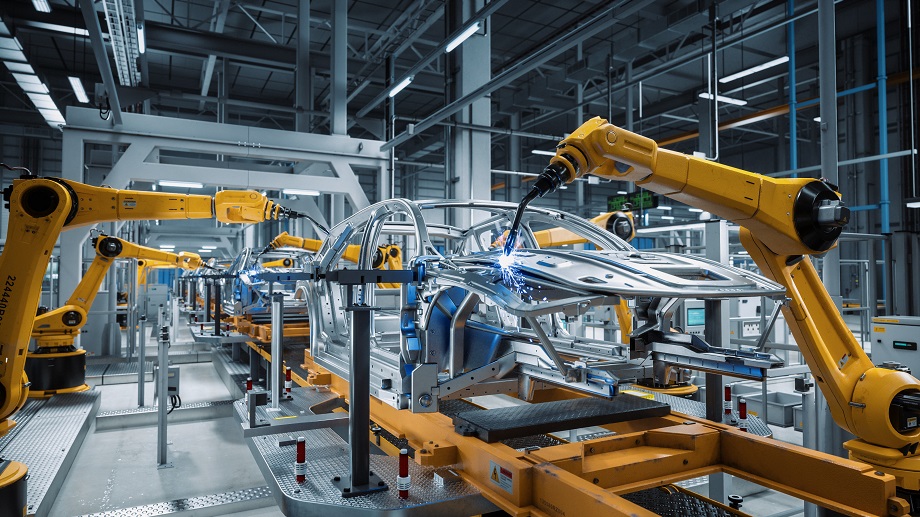
Artificial intelligence and process technology are two rapidly evolving fields that have been undergoing significant developments in recent years. AI is a broad term that encompasses various technologies, including machine learning, natural language processing, and robotics, among others.
Artificial intelligence (AI) and machine learning (ML) are revolutionizing process technology in manufacturing and processing industries. This phenomenon is not limited to the U.S. because they are virtually global applications.
The advancements in AI and ML are necessary to meet consumer and commercial demand, global competition, and limited resource availability. Process technicians, engineers, and plant operators work in teams to achieve these goals.
Artificial intelligence has the potential to significantly transform manufacturing and processing industries. Examples of the advantages include:
- Downtime is reduced
- Expenses are reduced
- Productivity goes up
- Quality is enhanced
- Fewer human mistakes are made
- Worker safety is enhanced
- Customers are happier
Artificial Intelligence And Process Technology
Large factories and processing plants are not the only ones that benefit from AI. Many smaller businesses are beginning to incorporate this technology with high-value, low-cost AI solutions. AI is capable of dealing with large quantities of data produced each day by industrial IoT and smart factories.
Machine learning and deep learning neural networks are amazing in analyzing data and making both simple and complex decisions. AI is used to order the right amount of raw materials at the right time to make inventory more efficient. It is also used to set parameters for accurate machining of parts and quality of water, solids, and gasses.
Artificial intelligence is also used to set and monitor instrumentation devices and stop production lines when problems occur. Workers get messages on their computers and phones to let them know what to do. AI is also used to control the assembly and packaging of products.
Machine Learning Is Also Vital For Process Technology
 Machine learning is another step in changing the paradigm from manually controlled operations to AI control with these features:
Machine learning is another step in changing the paradigm from manually controlled operations to AI control with these features:
- ML uses algorithms and data to automatically learn from underlying patterns
- It learns without explicitly programmed to do so or with human assistance
- Deep learning is a subset of machine learning that uses neural networks
- Deep learning networks can analyze things like images and videos to make decisions
The initial phase of machine learning implementation teaches the AI to carry out tasks by seeing how human workers do them. As the learning progresses, ML’s ability to think will be expanded and sustained. With enough time, it will learn on its own to perform many tasks without constant human supervision. It is also used to make more accurate demand forecasting for marketing and less material waste for production.
| “Artificial intelligence (AI) and machine learning (ML) are revolutionizing process technology in manufacturing and processing industries. The advancements in AI and ML are necessary to meet consumer and commercial demand, global competition, and limited resource availability.” |
Decision-Making In Artificial Intelligence And Process Technology
 AI has gone from analyzing data processing capabilities to making profound decisions for business and industry. Machine learning algorithms analyze historical data to identify and predict patterns. Managers can better understand future outcomes and make proactive decisions. The more advanced technologies can recommend a set of decision options from which to choose.
AI has gone from analyzing data processing capabilities to making profound decisions for business and industry. Machine learning algorithms analyze historical data to identify and predict patterns. Managers can better understand future outcomes and make proactive decisions. The more advanced technologies can recommend a set of decision options from which to choose.
Artificial intelligence can analyze and learn from large data sets and make decisions based on the data. It can even enhance the user experience in various ways. AI provides insights into data that can improve operations and processes that humans may overlook. It can optimize inventory levels for raw materials, parts, and finished products to avoid overstocking and stockouts.
Real-Time Monitoring Becomes More Accurate And Timely
AI and ML are helpful in monitoring production and operations in real time instead of as an afterthought. Everything in production and assembly lines can be observed closely throughout the entire plant. The slightest variations from standards and norms can be detected and workers are notified immediately of any issues.
Not only are monitoring issues more timely, but they are also more accurate. This precise reporting is significant compared to employees walking through the plant or watching instruments in a control room.
Predictive Maintenance Is Enhanced With AI
All production, processing, assembly, and packaging operations must be monitored and maintained on a regular schedule. Predictive maintenance is another application of AI where production data is used to improve failure prediction and maintenance planning. This function saves money for maintenance applications for production lines.
Predictive maintenance models and software evaluate many variables that reflect the equipment’s current status. It makes predictions based on past usage trends and informs maintenance teams of potential failures and downtime in advance from a day to a few months ahead. AI and ML are indispensable in today’s manufacturing and processing facilities in staying competitive.
You can learn more about process technology and AI by requesting information from ITI Technical College. Find out how you can enroll and succeed in this training program by contacting us today for more information.
For more information about graduation rates, the median debt of students who completed the program, and other important information, please visit our website: https://www.iticollege.edu/disclosures

